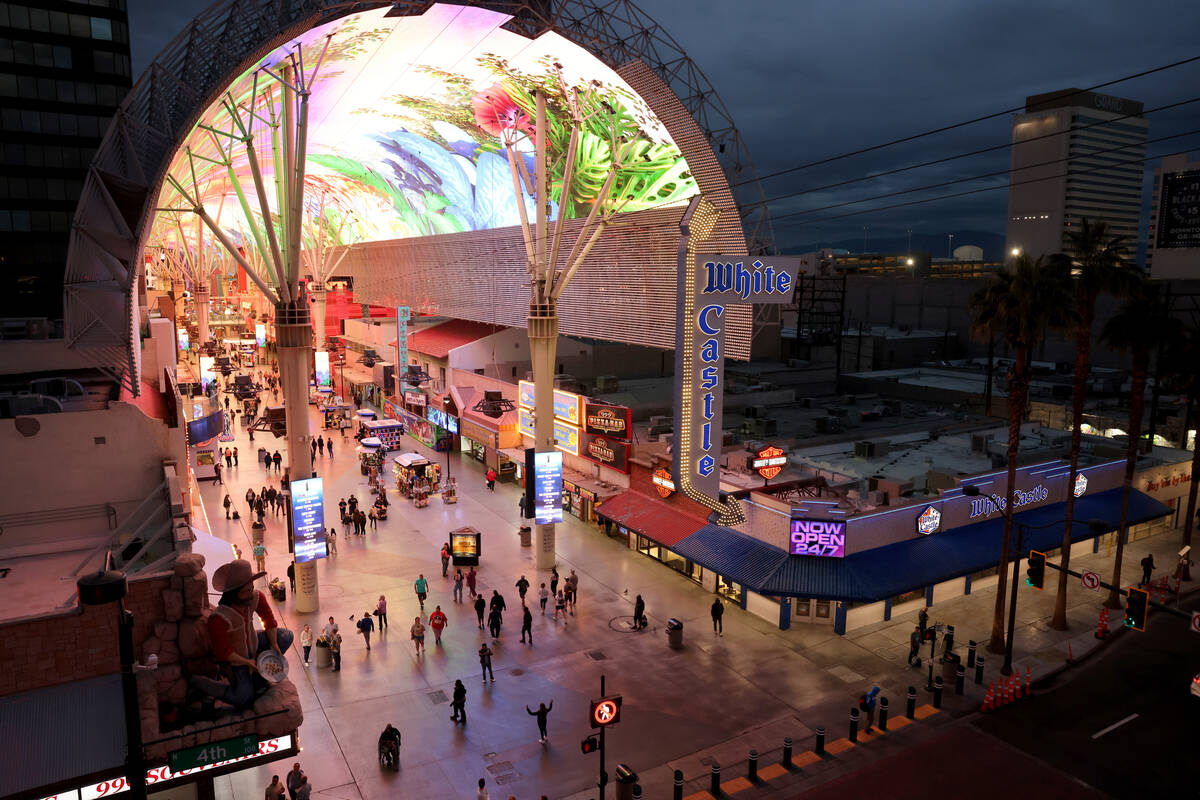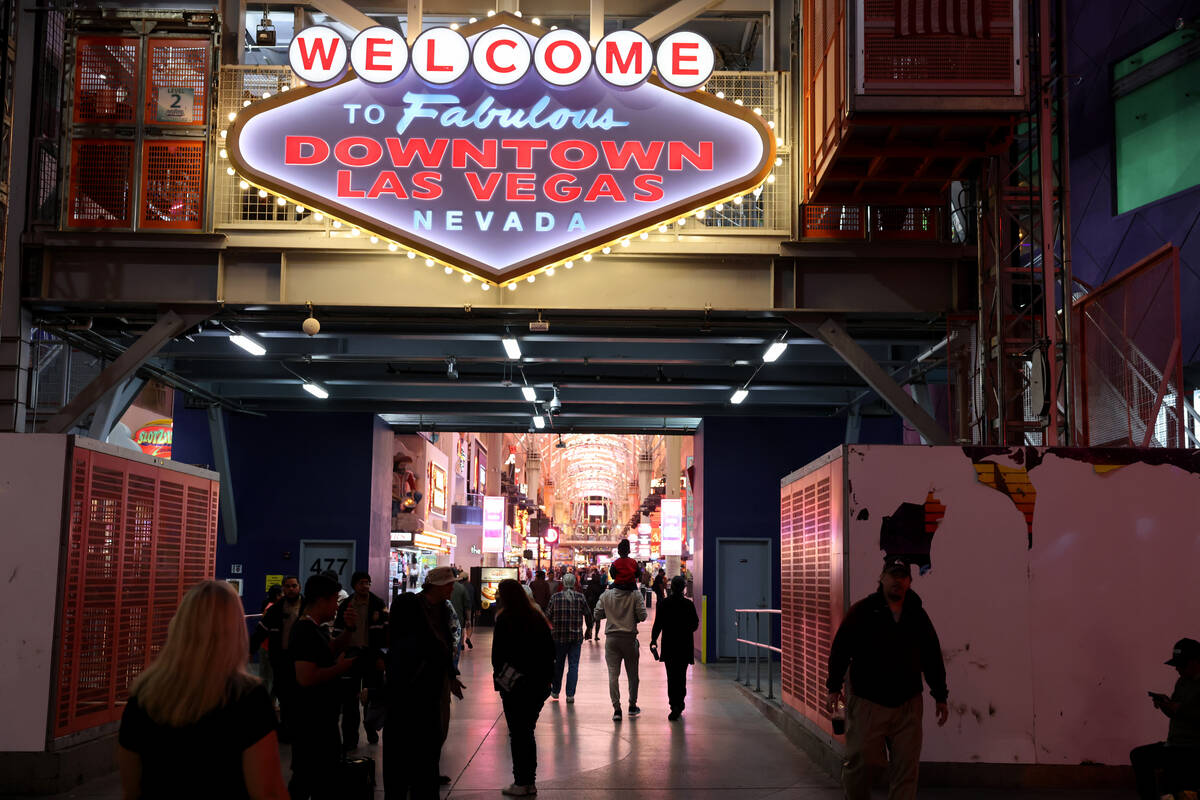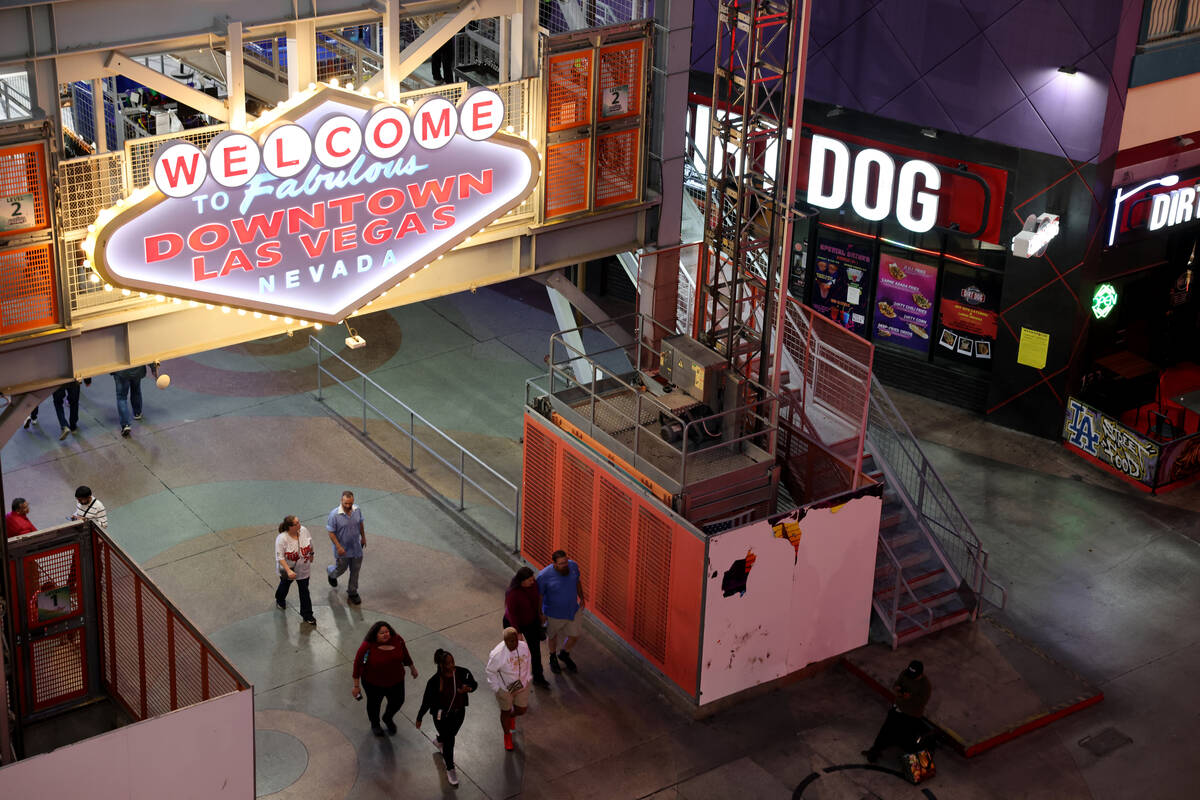Las Vegas studies expansion of its ‘order out corridor’
The city of Las Vegas is considering an expansion to its so-called “order out corridor” designed to bar certain people convicted of misdemeanor crimes from stepping in and around the tourist areas in downtown and The Strat.
The ordinance, which took effect in November, allows Municipal Court judges to impose orders to keep a person away from those zones for up to a year in lieu of a jail sentence.
Violating the order, however, can lead to an arrest.
Councilman Cedric Crear introduced an amendment to grow the city’s zone by 29 acres. The City Council did not take action during its meeting Wednesday, and the item will be discussed at a later time.
Currently, the downtown map encompasses 144 acres between Stewart and Bridger avenues and Main and Eighth streets. The proposal calls for additional acreage in the north and west areas.
Under the amendment proposal, the 67 acres surrounding The Strat will be unchanged.
Meanwhile, the Clark County Commission on Tuesday introduced a proposed amendment to its own order out corridor, which was adopted two years ago in and around the Las Vegas Strip.
The county’s amendment, which wouldn’t change its perimeters, seeks to fix an administrative error by introducing its map “into the code itself.”
Commissioners are slated to publicly discuss the ordinance next month.
Constitutional questions
The constitutionality of the 2022 county ordinance was challenged in the Nevada Supreme Court in an ongoing case justices declined to dismiss in July. Oral arguments have not been scheduled, according to the court docket.
Opponents argue that the local government laws violate the First Amendment right to “access a traditional public forum,” according to an amicus brief co-signed by several organizations, including the Nevada American Civil Liberties Union.
Las Vegas City Attorney Jeff Dorocak told the City Council in July that the city was monitoring the Supreme Court case.
“It’s pretty bold” for the city to ignore that case before seeking changes to its ordinance, Chris Peterson, legal director for the local ACLU, told the Las Vegas Review-Journal on Wednesday.
Peterson said that judges already had a power to order that defendants stay away from particular areas if the location was pertinent to the “underlying criminal offense.”
“The public has a right for judges to do their job,” Peterson said. “We want them to make measured decisions tailored to each case they’re dealing with, not treating everything as a one size fits all.”
Peterson added: “That’s precisely what these ordinances are inviting.”
Expanded scope
The local ordinances expanded the scope of previous order out zones that originally addressed people convicted of crimes related to prostitution and drugs.
Metropolitan Police Department and local government officials counter that the order out corridors have tampered crime in and around the tourist destinations.
During a presentation at City Hall in July, officials said that nearly 250 people had been ordered to stay away from the downtown area during the first months of Las Vegas’ ordinance.
A total of 81 people were jailed for violating the order, and nine went on to violate the order again, said officials, who noted that the top four offenses among those people were trespassing, battery, obstructing police and disturbing the peace.
More than half of the offenders were determined to be homeless, according to the presentation.
The ACLU has alleged that the practice unjustly targets people experiencing homelessness, street performers and protesters, giving police an excuse to “conduct stop-and-frisk searches.”
Peterson noted that protests typically take place in downtown Las Vegas and the Strip.
Contact Ricardo Torres-Cortez at rtorres@reviewjournal.com.





















